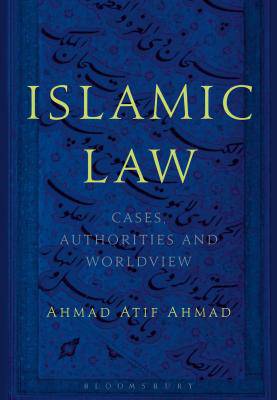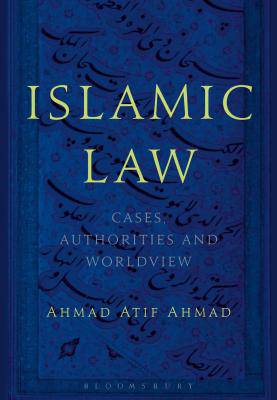
- Afhalen na 1 uur in een winkel met voorraad
- Gratis thuislevering in België vanaf € 30
- Ruim aanbod met 7 miljoen producten
- Afhalen na 1 uur in een winkel met voorraad
- Gratis thuislevering in België vanaf € 30
- Ruim aanbod met 7 miljoen producten
Zoeken
€ 118,95
+ 237 punten
Uitvoering
Omschrijving
Introducing undergraduate students to Islamic law, this accessible textbook does not presume legal or technical knowledge. Drawing on a comparative approach, it encourages students to think through the issues of the application of Islamic law where Muslims live as a majority and where they live as a minority, including the USA, Saudia Arabia, Egypt, Pakistan.
The book surveys the historical development as well as the contemporary contexts of Islamic law. In distilling the history of Islamic law for non-specialists, the author covers important topics such as the development and transformation of Islamic institutions before and after colonialism. Coverage of Islamic law across contemporary contexts draws on real case material, and allows for discussion of Islam as a legal and a moral code that is activated both inside and outside the court. Readers will learn about rituals, dietary restrictions, family, contracts and property, lawful and unlawful gain, criminal law and punishments, and what makes a government legitimate in the eyes of Muslim individuals and authorities.Specificaties
Betrokkenen
- Auteur(s):
- Uitgeverij:
Inhoud
- Aantal bladzijden:
- 224
- Taal:
- Engels
Eigenschappen
- Productcode (EAN):
- 9781474274487
- Verschijningsdatum:
- 5/10/2017
- Uitvoering:
- Hardcover
- Formaat:
- Genaaid
- Afmetingen:
- 178 mm x 244 mm
- Gewicht:
- 498 g

Alleen bij Standaard Boekhandel
+ 237 punten op je klantenkaart van Standaard Boekhandel
Beoordelingen
We publiceren alleen reviews die voldoen aan de voorwaarden voor reviews. Bekijk onze voorwaarden voor reviews.








